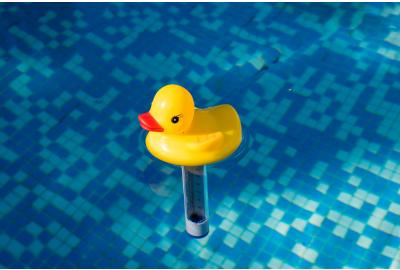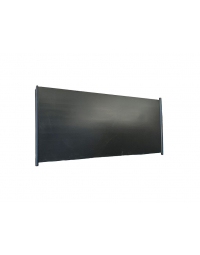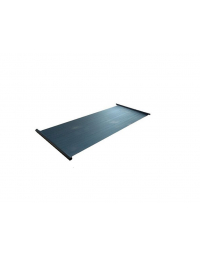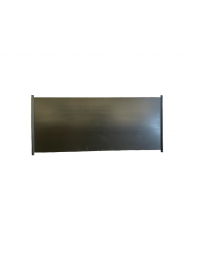Do you enjoy swimming in a freezing cold pool? We certainly don’t! The Pool Team has all the solutions to warming up the pool and extending swimming season so that pool owners can enjoy their pools for longer.
We recommend solar pool heating! Let’s discuss the different solar heating options and their benefits.
Solar Blankets
Solar blankets are pool covers that are specifically designed to retain heat and keep the water warm. These pool covers can be cut to suit any pool size and shape. There are two solar blankets options – 400 microns and 500 microns. Both essentially serve the same purpose however; The Pool Team recommends the 500 microns blanket as it will retain more heat than the 400 micron. Other benefits of solar blankets include:
- Reduced chemical usage
- Reduced evaporation
- Prevents leaves and debris from entering the pool
Solar Panels
Solar panels are The Pool Team’s top recommendation when it comes to choosing a Solar heating option. There are two types of Solar panels: spaghetti panels and solid panels.
Spaghetti solar panels are designed in such a way that the individual tubes are directly exposed to the sun and only connected at the bottom and the top of the panel. This allows for more movement in between each tube which makes the panel vulnerable to damage due to harsh weather conditions.
It is for this reason that The Pool Team recommends solid solar panels. Solid solar panels contain the tubing inside a solid polyethylene sheet. These panels are more durable and require less maintenance as they are more resistant to harsh weather conditions. Solid solar panels also more effective and produce more heat due to the extra layer.
How do Solar panels work?
Solar panels are installed on the roof of the building where they are exposed to the sun. They are connected to the pool pump via PVC piping and therefore do not require an external power source. The cold pool water travels from the pump, through the solar panels where the water gets heated. The warm water then travels through the return line, back into the pool. In order for the panels to work efficiently, they need to be installed at an angle to allow the water to drain when the pump is off. It is also recommended to install a backing sheet in order to prevent damage to the roof from the friction of the solar panels. To get the most out of the solar panels, The Pool Team recommends using them in conjunction with a solar blanket in order to retain the heat.
Solar panels come in different sizes to suit the size of the pool. To calculate how many panels are needed, it is important to know the surface area of the pool as the solar panels would need to cover 60% of that surface area.
The equation to calculate the number of panels needed is as follows:
Surface area of the pool × 60% ÷ the size of the panel.
Example:
- if the pool is 8m × 4m, that equals 32m2. One would need enough panels to cover 60% of the surface area.
- 32m2 × 60% = 19.2m2.
- If you are purchasing a 3.75m2 panel, in order to determine how many panels are needed, the calculation would be as follows:
- 2m2 ÷ 3.75m2 (per panel) = 5.12 panels. This means that 5 panels would be sufficient. However, The Pool Team recommends using one additional panel in order to gain the maximum benefit.
Solar panels come with many benefits:
- They are energy efficient as they heat the pool water with the sun’s rays, through the use of the existing pool pump. Solar panels do not require their own power source.
- They are quick and easy to install and require very little maintenance.
- Solar panels are capable of heating the pool water by an additional 8°
- They come in various sizes to suit the size of the pool.
Shop solar panels here or head to your nearest store to get professional advice on your personal solar heating solution!




